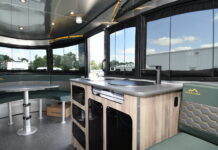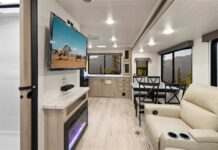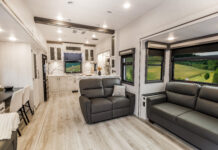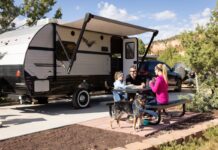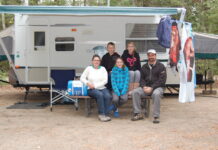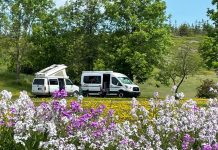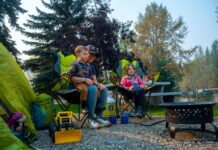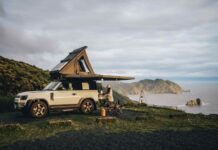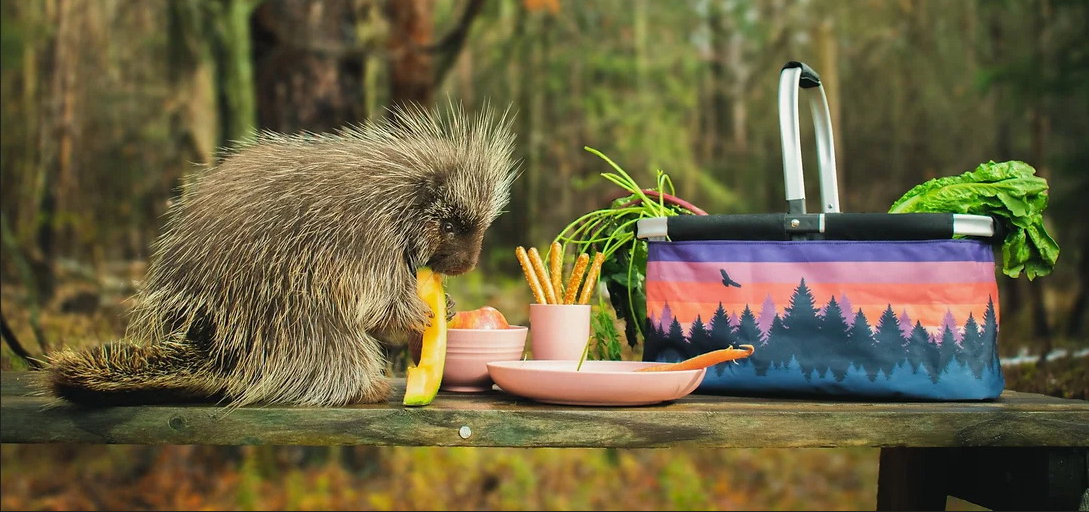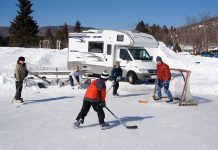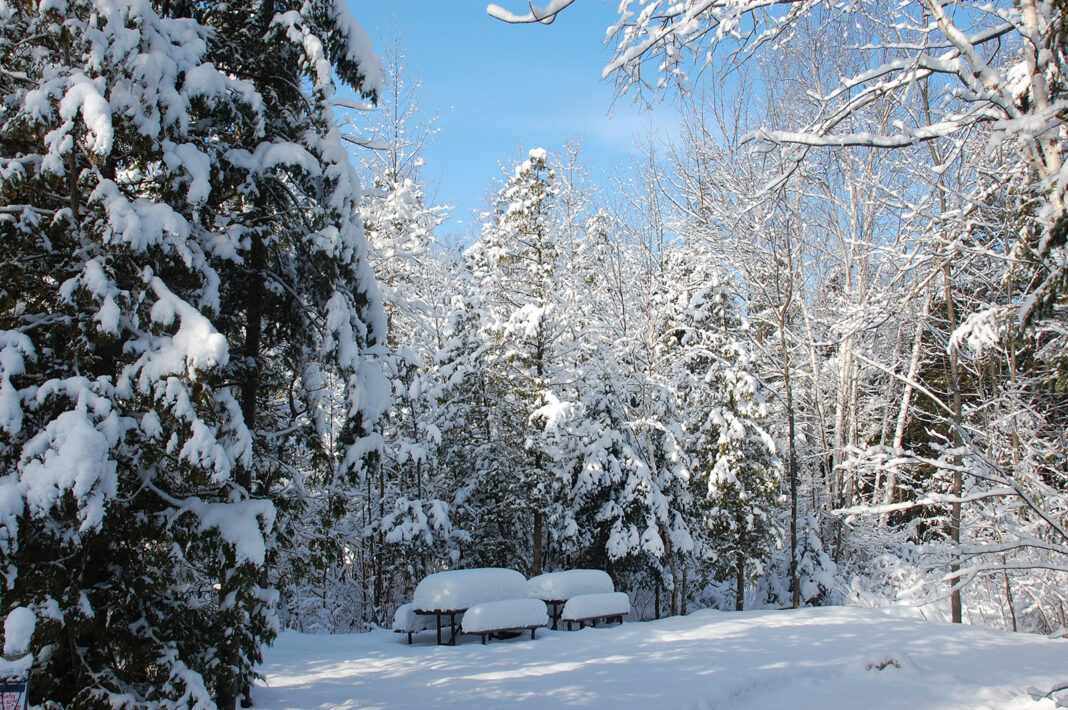Are You Ready for Winter?
By Frank & Lucy Spence
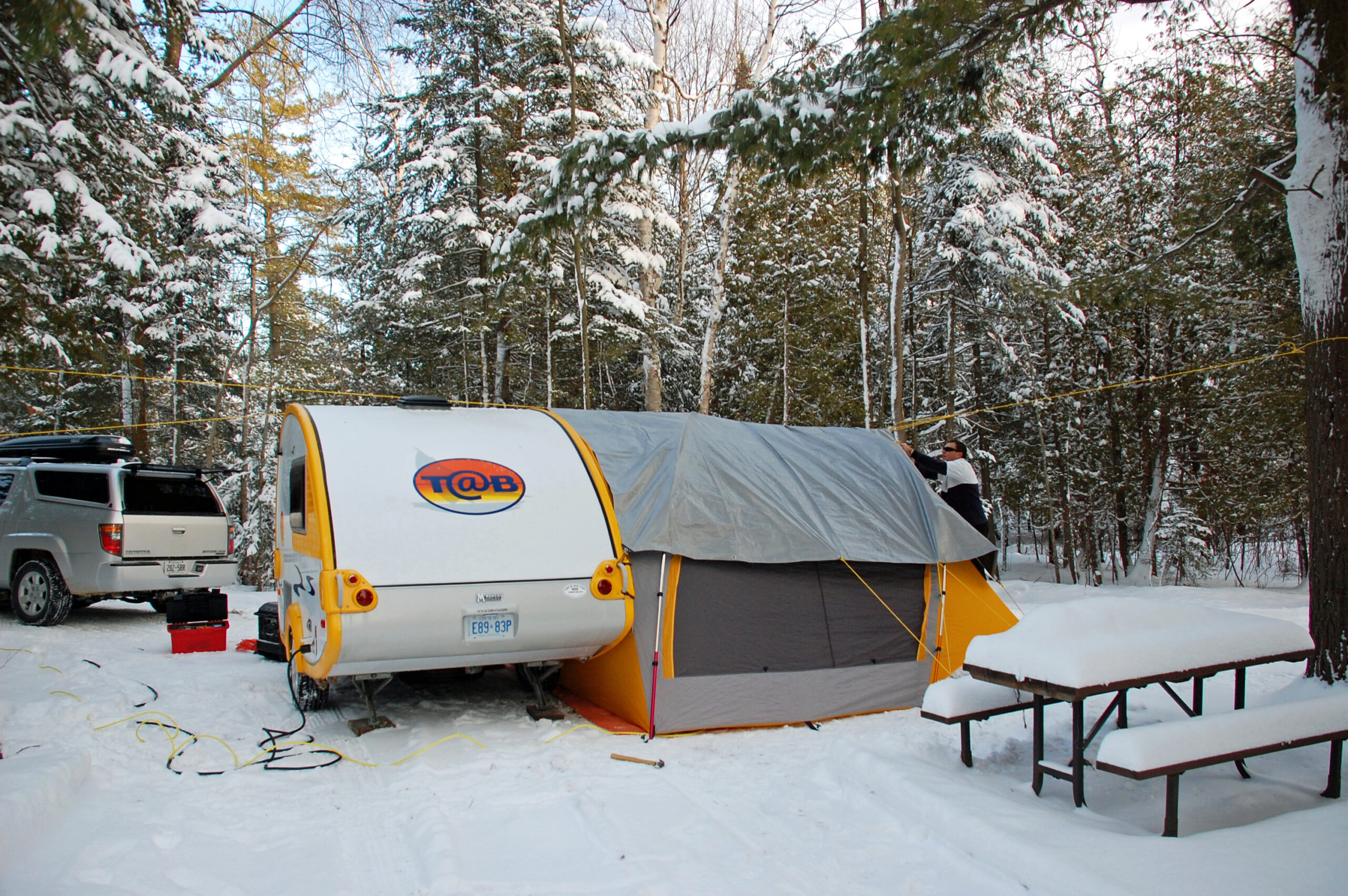 Are you at home in the “off season” with your RV in storage?
Are you at home in the “off season” with your RV in storage?
Frank & Lucy Spence have spent years teaching other RV enthusiasts all about the joys of extending the RV season in Canada. We asked them to put together some thoughts, so all of us can learn how they go about enjoying four seasons RV’ing, and in particular the extended season between October and the end of April.
When RV Lifestyle Magazine asked us to write this article, we were interested in knowing what was available in the way of campgrounds across Canada – places that RV’ers could visit in the “off season”. We already knew that more and more private campgrounds were opening their RV facilities for skiing, ice fishing, snowmobiling along with some RV’ers just wanting to camp. A number of resorts with parking lots and electrical plug-ins are now catering to RV enthusiasts, and the number is growing every year!
Since the Winter Olympics in Vancouver opened up locations for RV’ers, the trend has grown year after year for parks and campgrounds across Canada to embrace winter. Many campground operators now consider the effort to make their sites available during the “off season” be an economically viable addition to their regular operations.
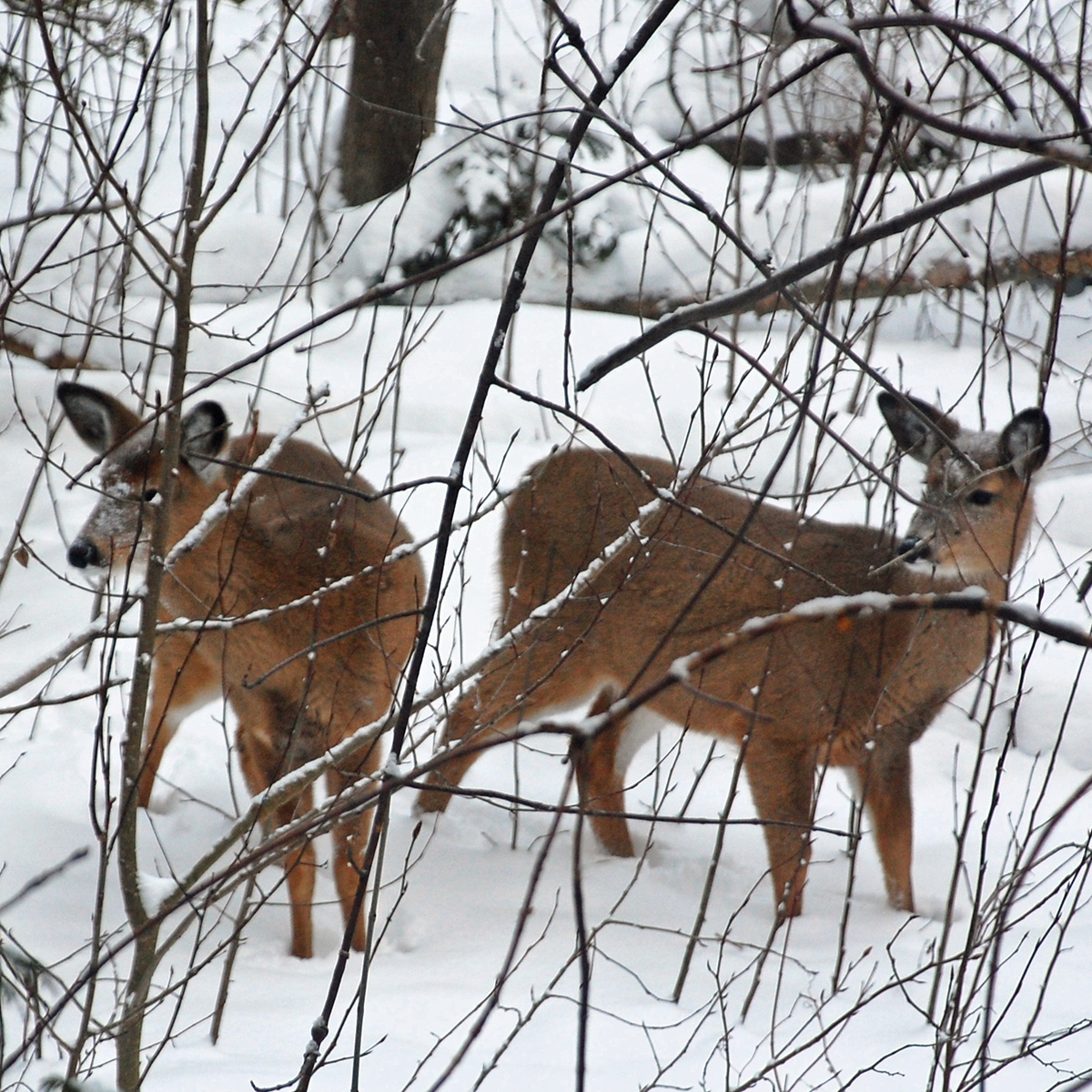 To bring the winter camping experience up to date, we contacted the National and Provincial Park offices across Canada to determine the availability of services for the extended season RV’ers. It turns out that services are largely dependent on what part of Canada you happen to be in. Some areas have many options available for off-season camping, others offer more limited opportunities. Possibly, with the ever-increasing numbers of RV’ers wintering in Canada, the selection of open facilities will increase including more National and Provincial Parks. Some localities restrict the campground season, but these bylaws are being challenged with some success.
To bring the winter camping experience up to date, we contacted the National and Provincial Park offices across Canada to determine the availability of services for the extended season RV’ers. It turns out that services are largely dependent on what part of Canada you happen to be in. Some areas have many options available for off-season camping, others offer more limited opportunities. Possibly, with the ever-increasing numbers of RV’ers wintering in Canada, the selection of open facilities will increase including more National and Provincial Parks. Some localities restrict the campground season, but these bylaws are being challenged with some success.
Check the status of winter camping in Canada’s National and provincial parks – here is the RV Lifestyle Magazine list of parks across the country: https://www.rvlifemag.com/plan-your-visit-to-parks-canada-campgrounds/
Another indication of the immense interest in the extended RV season is the combining of RV’ing with various other activities such as visits to see curling and professional hockey games. Staying in the parking lot with a generator running, rather than driving hours to get to another location, may be a very wise, safe, and enjoyable decision.
We like to visit sites that are inspired by the Winter Olympics – take a look at this article to help you plan a winter themed adventure: https://www.rvlifemag.com/rv-destinations-inspired-by-the-winter-olympic-games/
Our advice is to contact the locations that you have an interest in and ask what RV accommodations are available. Whether it is a privately operated park, or any of our National or Provincial parks, this is the first step to increasing the awareness of this growing activity. If you cannot find places open, it is time to lobby for change.
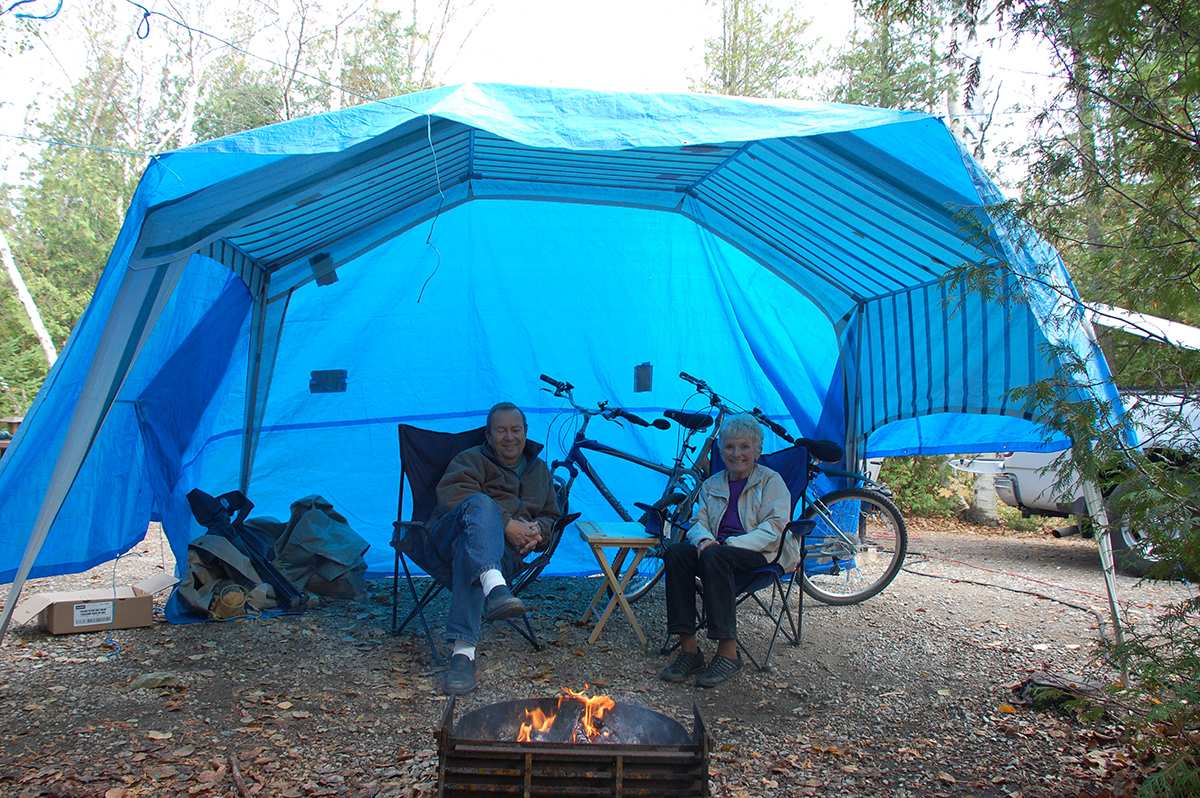
We have been RV’ing through the Canadian winters for a decade. During the past few years, we have written a number of articles, a book, and hosted seminars to teach others how to RV in all seasons with a special emphases on the extended season. Every camper has a significant investment in the RV and camping equipment – why not make use of it. Whether you extend your camping season a few weeks, a month, or two, or embrace the full winter camping experience is a personal choice, but the key is to get out and try it, learn and enjoy.
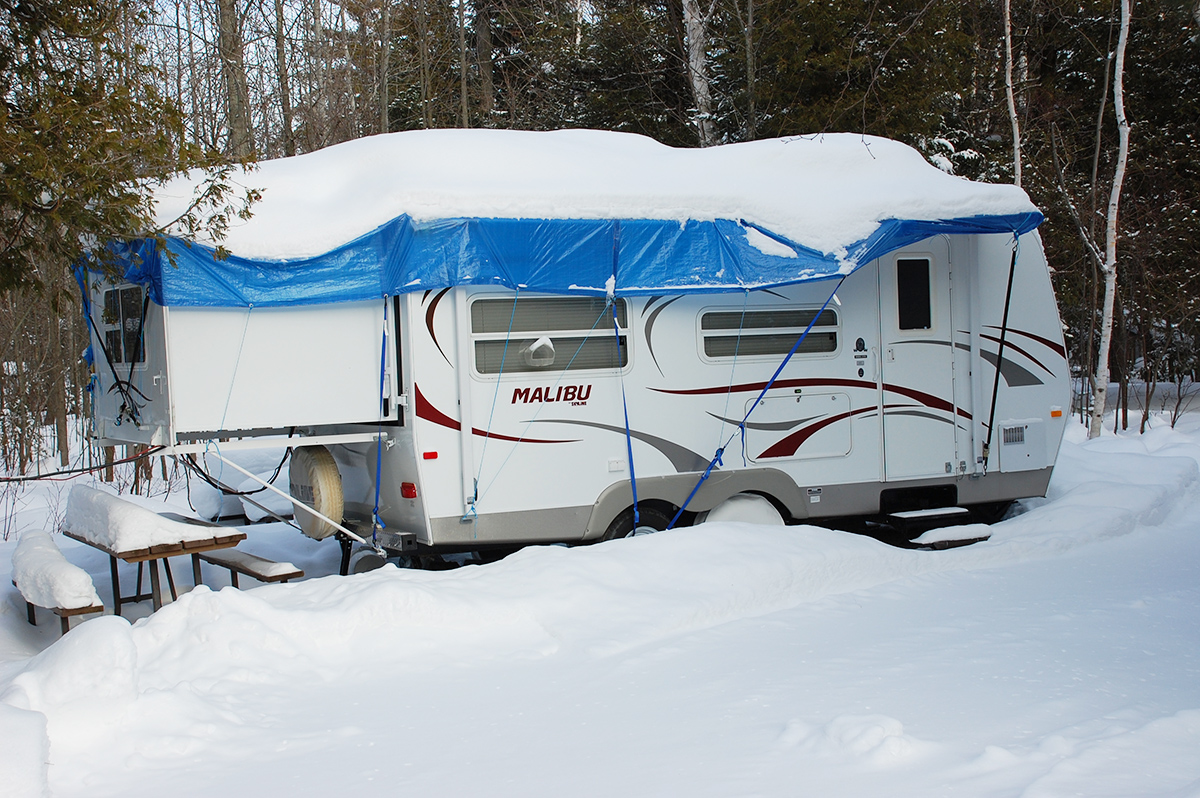
Imagine welcoming in the New Year in a campground with the overhead stars, the crisp night air, a blazing campfire, and in the company of fellow campers. There is no need to worry about driving home. Why not celebrate a special occasion by going RV’ing? One Provincial park decided to expand the camping opportunities by allowing campers to occupy a campsite from November through to April. A small storage fee was charged, and the campers paid the regular camping fee when they came camping with the advantage of their equipment being all set up. The roads and campsite driveways are cleared of snow by the park. The comfort station is operational with hot showers and laundry facilities.
Weather permitting, one of the unused campsite roads is plowed and flooded, making a 400-metre outdoor oval skating rink. Other features include snowshoeing and cross-country skiing – some areas are lit for night use. A toboggan hill is always popular. Volunteer campground hosts may be on duty all winter. Last season, a “Campground Full” sign had to be put up – every available spot had been filled for the winter!
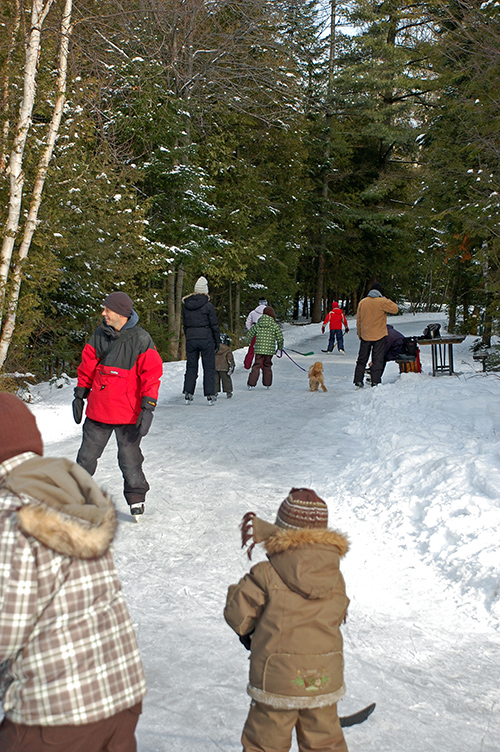 Check out the open campgrounds and you will be surprised to see the number of people enjoying themselves in their new adventure. We have recorded thousands of camper nights each winter in the Canadian parks we have visited.
Check out the open campgrounds and you will be surprised to see the number of people enjoying themselves in their new adventure. We have recorded thousands of camper nights each winter in the Canadian parks we have visited.
Most people will have winterized their RV for storage. You can use your unit with all the antifreeze still in the fresh water lines as we do, and that includes our black and grey water tanks. With our enclosed holding tanks, we use a 60 or 100 watt light bulb to add heat in that compartment. We add a jug of the most inexpensive windshield washer antifreeze immediately after emptying our black and grey tanks and the valve is closed (this has been tested and ok’d environmentally).
Experienced winter RV’ers will have heated tanks that came with their unit or they may have modified their unit to allow for full use of the water system any time of the year. For the rest of us, knowing how to utilize what we already have is all that is necessary.
Usually, the women are more interested in the toilet arrangements, washing situation and ensuring that there is proper heat, before agreeing to consider an extended season of RV’ing. The men are more interested in the functionality of the RV, water availability, and driving conditions along with the outdoor activities including campfires, and barbecues. Once you discover it is do-able, your vacation lifestyle and winter RV’ing take on a new meaning.
We store jugs of water in the shower for cooking and washing. If your tanks are subject to freezing, try doing this: remove the “J” trap under the sink, add a container to catch any water while using a dishpan in the sink. To use the toilet, add a plastic bag to the toilet bowl as this can be easily removed and disposed of. A Porta-Potty also works.
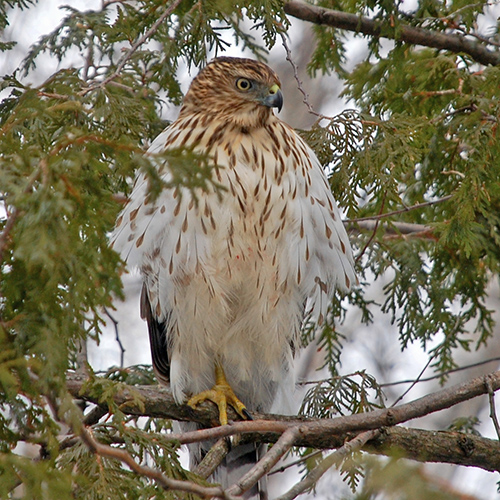 Extra heat can be provided if necessary with a couple of electrical heaters and an extra power cord coming in a window. Foam pipe insulation put over the edge of the glass will seal the draft when the window is closed. Window coverings of various kinds that fit snugly will help to keep out the nighttime chills, reduce heat loss and lessen the need for the furnace to run constantly. Are all your detectors fully operational (CO, Smoke, and Propane)? A suitable portable or on-board generator is a very good idea to cope with any local power outages.
Extra heat can be provided if necessary with a couple of electrical heaters and an extra power cord coming in a window. Foam pipe insulation put over the edge of the glass will seal the draft when the window is closed. Window coverings of various kinds that fit snugly will help to keep out the nighttime chills, reduce heat loss and lessen the need for the furnace to run constantly. Are all your detectors fully operational (CO, Smoke, and Propane)? A suitable portable or on-board generator is a very good idea to cope with any local power outages.
Have you noticed rigs with moisture dripping from all the windows? The solution is to leave open two vents (side window and ceiling vent) about two fingers wide. Yes, some heat will escape but so will the moisture. When necessary, turn on a ceiling vent fan until all the windows are moisture free. Try it – it works!
Safe driving in winter conditions is always a concern. Have a portable battery operated radio handy to be aware of road and weather conditions. If in doubt, remain where you are until it is safe to venture forth. When it gets really cold, be sure to park your RV in a position that allows your batteries to be easily accessed with booster cables.
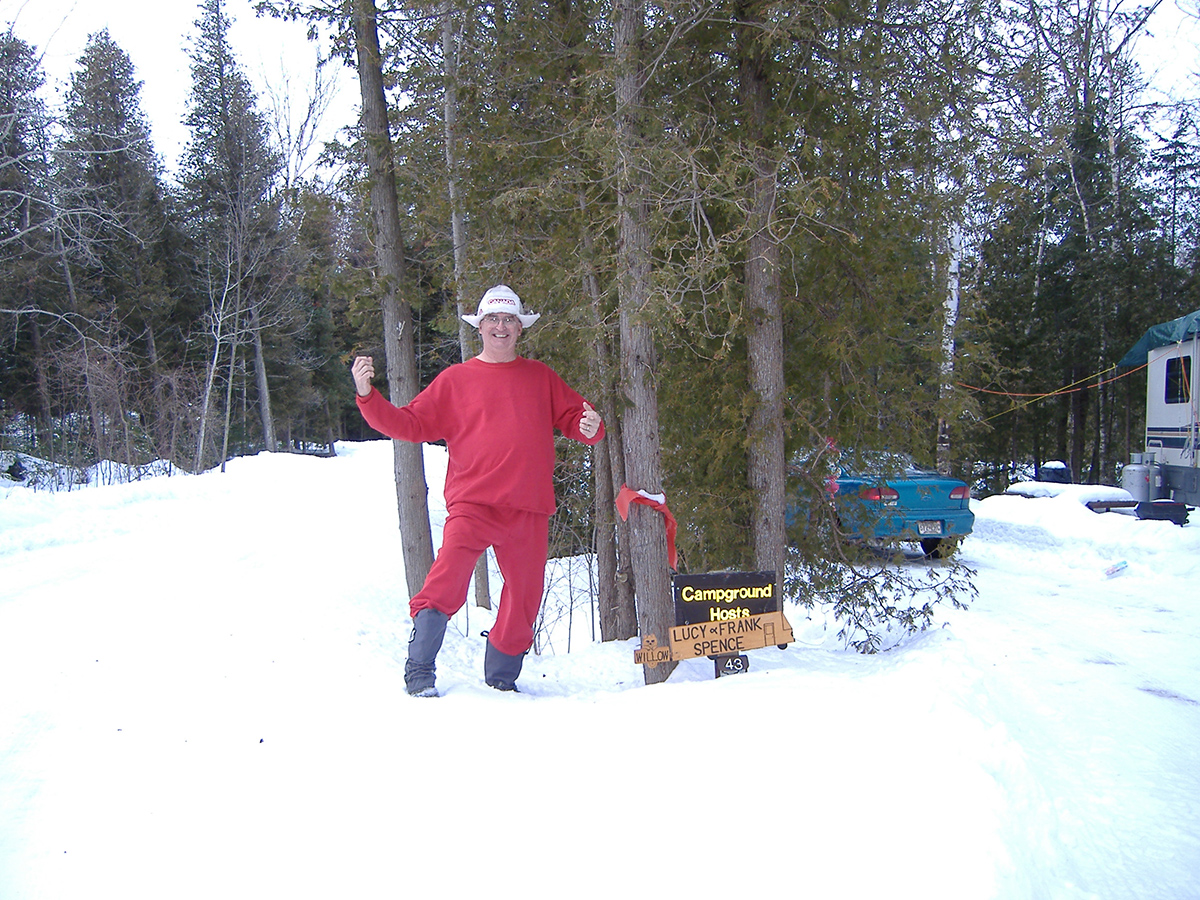 You should have a shovel and extra flashlight batteries. Should it happen to snow, a deployed awning could be a recipe for disaster! A few tarps strung up to act as windbreaks are useful.
You should have a shovel and extra flashlight batteries. Should it happen to snow, a deployed awning could be a recipe for disaster! A few tarps strung up to act as windbreaks are useful.
Do not store lock de-icing fluid behind a locked door.
Warm dry footwear and clothing are a must during the winter, and having somewhere to hang all that clothing will be necessary. We use a rod in the shower to hang wet clothing. A boot tray just inside the door and a hair dryer can be useful. Electric blankets are cozy for nighttime especially when combined with fleece bed sheets.
Getting outside and enjoying nature, fresh air in your lungs and rosy cheeks are good things. Spending time with family and friends helps to reduce the stress of everyday life but then, as a camper, you already know that.
This is the most wonderful season of the year, it is time to get out and enjoy our Canadian lifestyle to the fullest!







